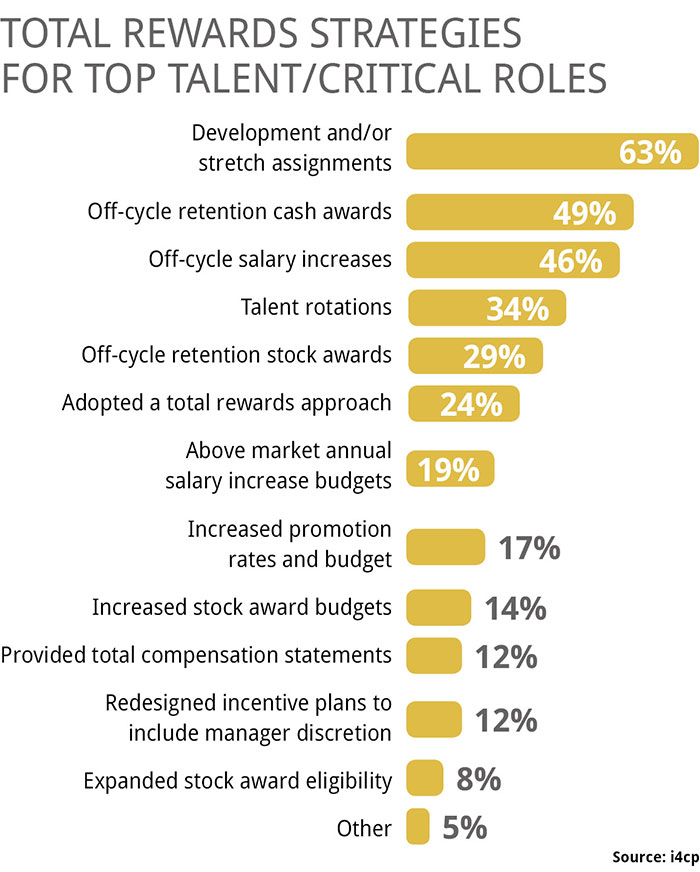
Why Total Rewards Must Encompass the Employee Experience
In the past, total rewards leaders grew into the profession by learning and applying the technical aspects of compensation and benefits. As the business environment became more complex, the standard practice of compensation and benefits evolved into what we know today as total rewards. Not only do rewards practitioners focus on the monetary elements of what it takes to attract and retain a workforce, the focus has expanded to other elements of the employee experience as well.
The strategic value of work environment, training programs, work-life policies, wellness benefits, promotion opportunities, mentors, and many other innovative programs cannot be overstated. In fact, many employers find their true competitive advantage when offering culturally unique experiences that extend well beyond pay and benefits.
Research conducted earlier this year by the Institute for Corporate Productivity (i4cp) supports this notion. We found that when employers go through hard times, the most effective programs for attracting and retaining talent are learning opportunities and career development experiences.
 Recently, a very talented leader told me that his goal for the day was to “Make sure I make it through the day without offending anyone.” For context, this person is new to his company. He is extremely bright and accomplished in his chosen field. In his prior company, he was handsomely rewarded for his “lone ranger” behaviors. However, with the new employer, where a culture of interpersonal communication and collaboration is highly encouraged, he has gotten off to a rough
start.
Recently, a very talented leader told me that his goal for the day was to “Make sure I make it through the day without offending anyone.” For context, this person is new to his company. He is extremely bright and accomplished in his chosen field. In his prior company, he was handsomely rewarded for his “lone ranger” behaviors. However, with the new employer, where a culture of interpersonal communication and collaboration is highly encouraged, he has gotten off to a rough
start.
Does your company’s total rewards structure have anything to offer this person? He certainly doesn’t need a pay adjustment, or a better health plan. This is not a monetary crisis, but it does call for a rewards solution.
Fundamentally, he needs to understand the risks and rewards of acting out interpersonally. He needs to be provided with helpful and constructive experiences to help him grow beyond the defensive posture he is in now. He needs a mentor who will help him first understand the culture of the organization he has joined, and how to work and play well with others (not everyone is wired to do this well). Maybe he needs a patient, skilled manager who will coach him through the rough patches with his peers. Or maybe he needs a bonus plan that not only measures what gets done but also measures how work gets done.
If you haven’t experienced it already, it is very likely that the scope and breadth of your responsibility as a total rewards leader will expand significantly. Your organization needs careful inquiry, skilled internal consulting, and thoughtful, efficient solutions to the issues and concerns of people in the business. No doubt you are competent with the monetary stuff; my challenge here is to develop a similar level of competency in getting your company to invest in the rewarding experiences that will improve the likelihood top talent joins and stays engaged in the success of your business.
Mark Englizian, former CHRO, Walgreens Co., and Global Leader for Total Rewards with Amazon, is Chair of the i4cp Total Rewards Leader Board .